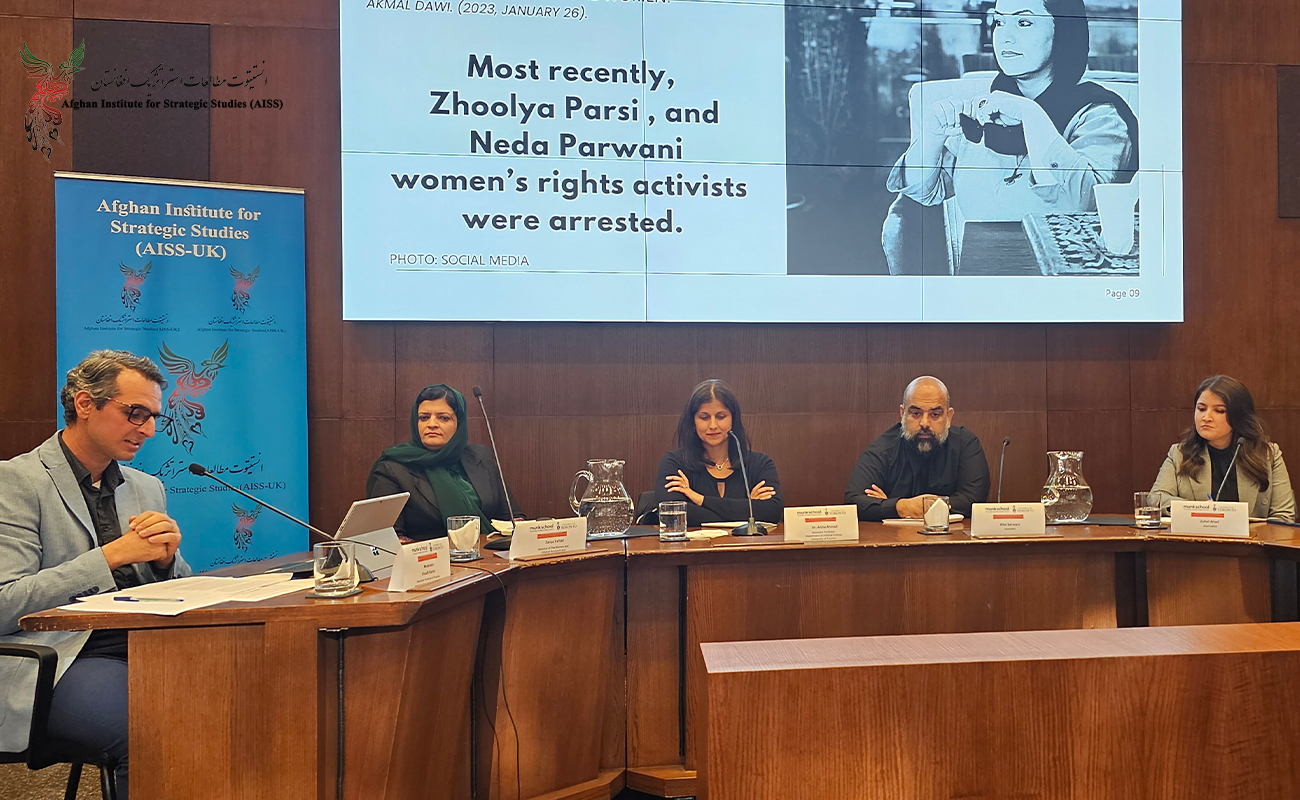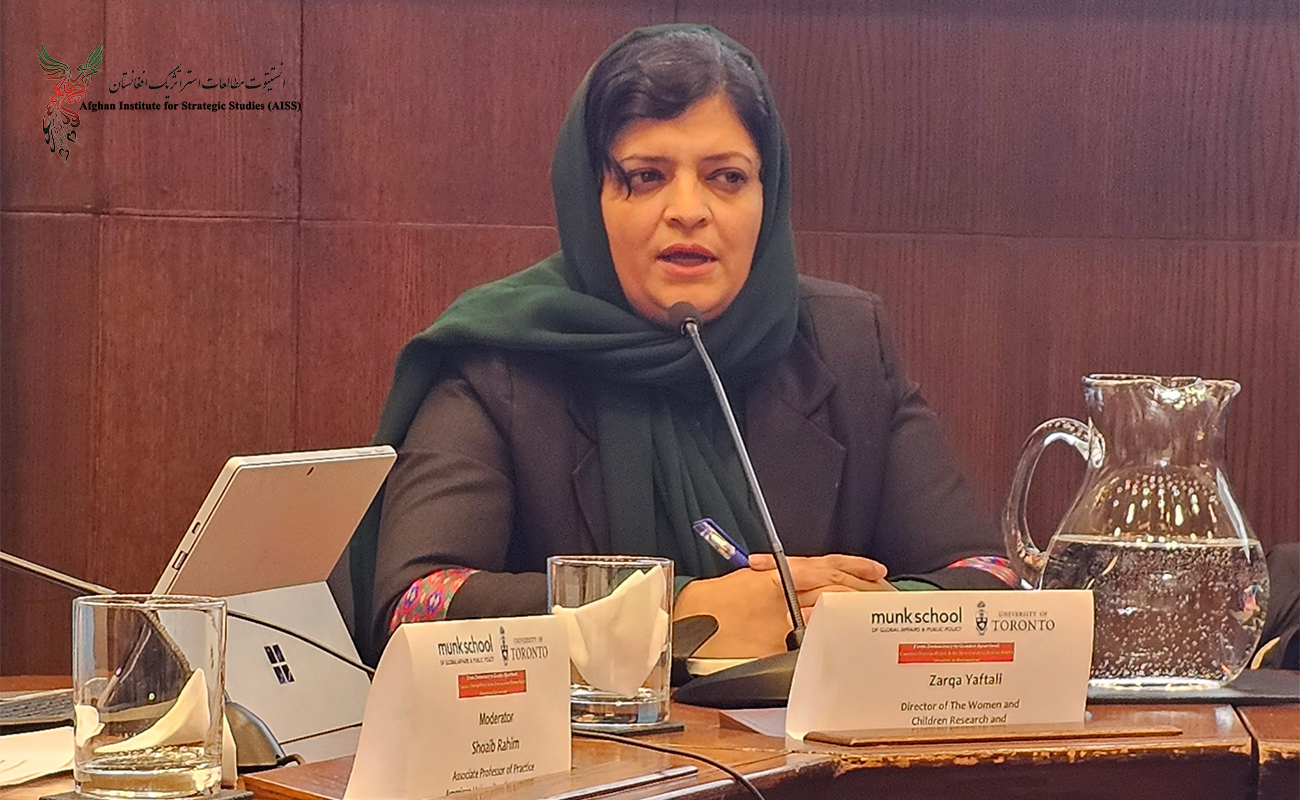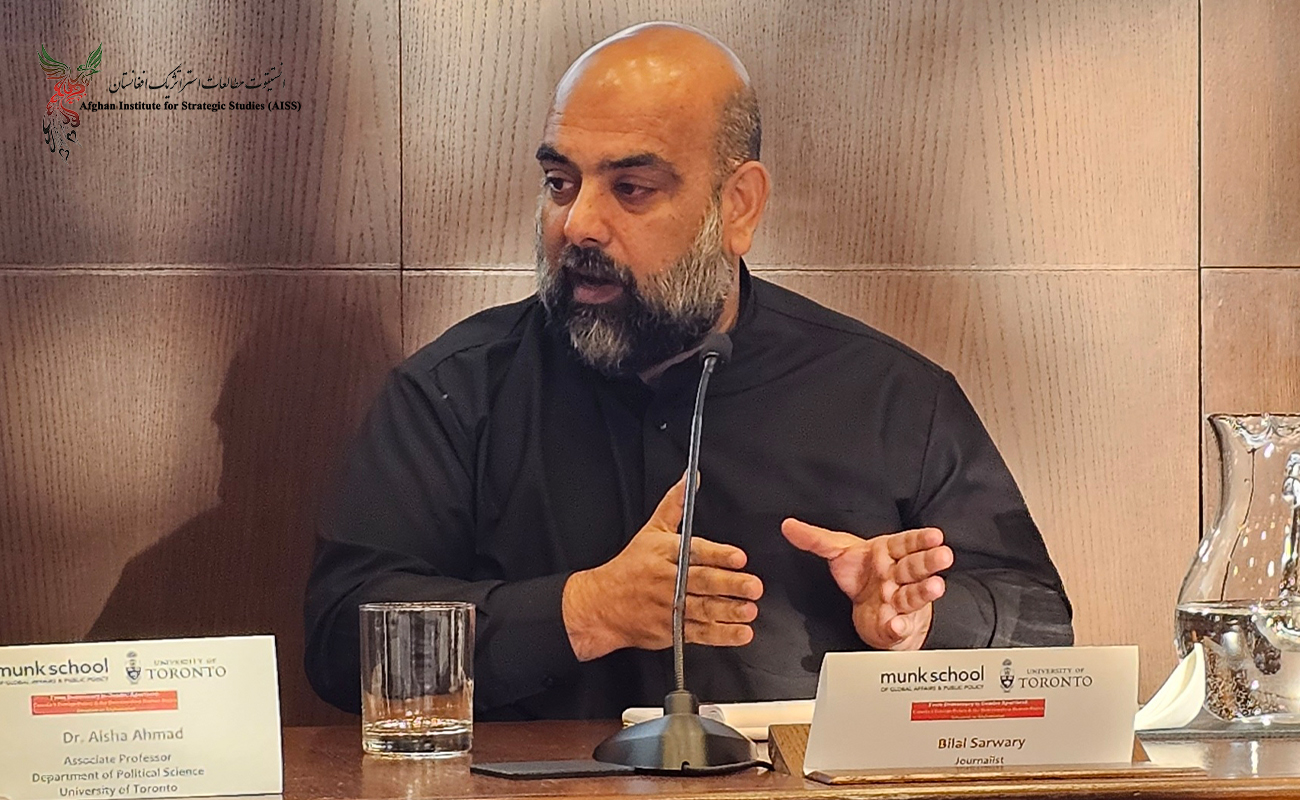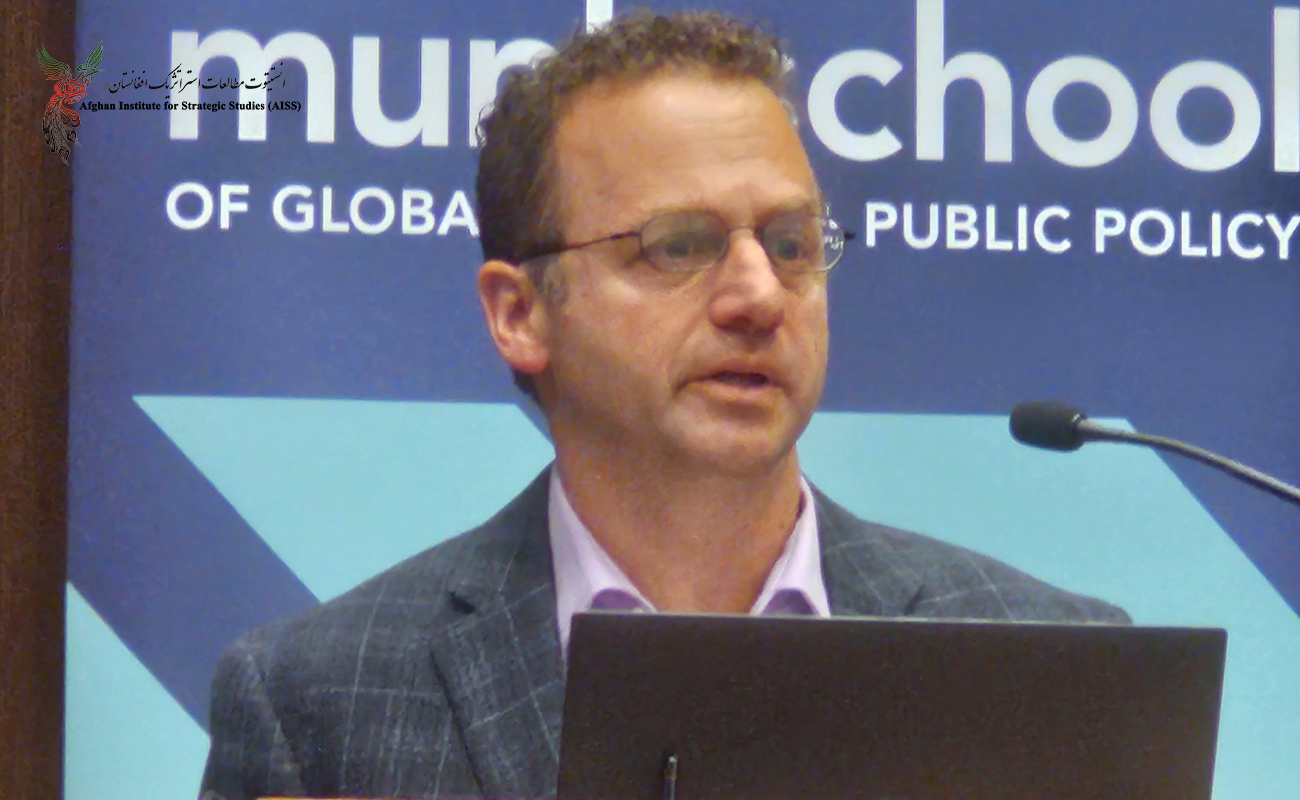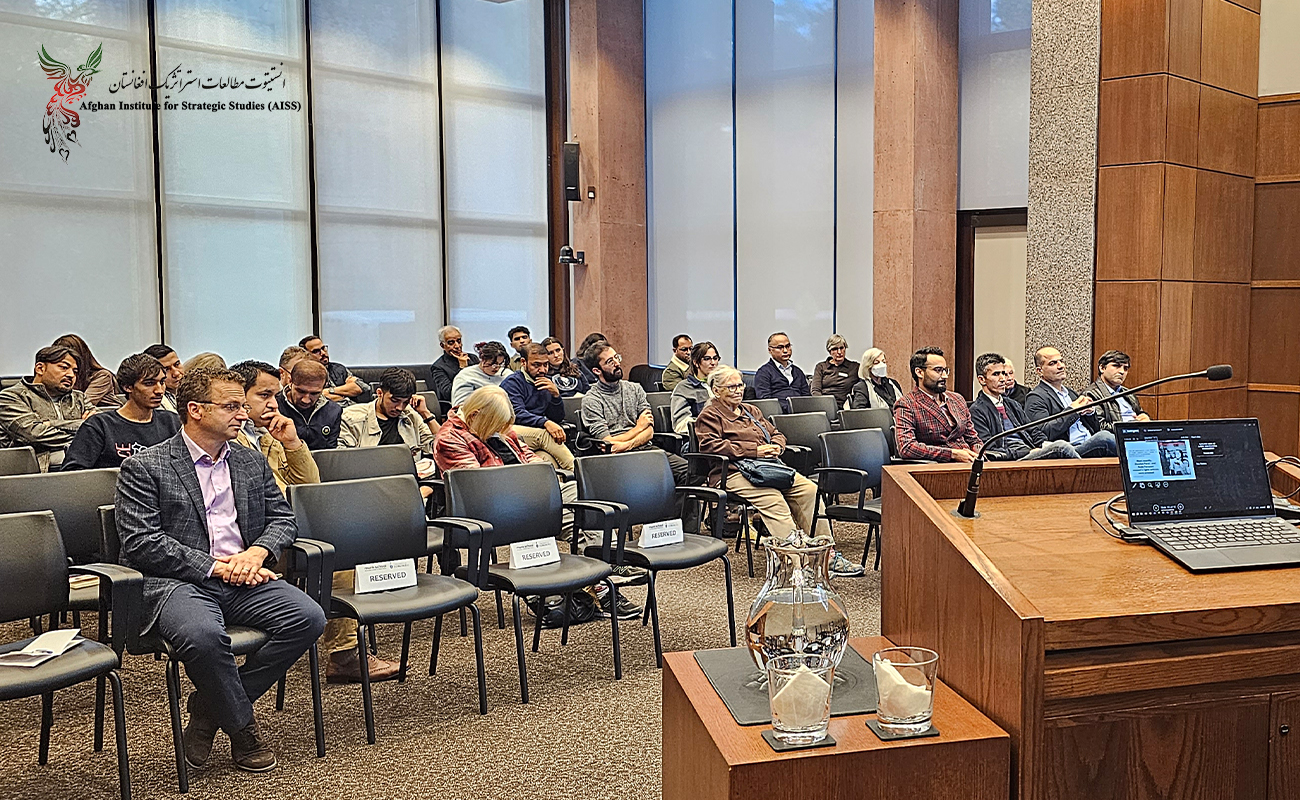From Democracy to Gender Apartheid: Canada's Foreign Policy and the Deteriorating Human Rights Situation in Afghanistan
On Thursday, October 12, 2023, the Afghan Institute for Strategic Studies held a panel discussion titled “From Democracy to Gender Apartheid: Canada's Foreign Policy and the Deteriorating Human Rights Situation in Afghanistan” at Munk School of Global Affairs and Public Policy, University of Toronto. The event was co-sponsored by Munk Schools's Center for European, Russian and Eurasian Studies, and Munk School’s Asian Studies.
The panel discussion was moderated by Shoaib Rahim, Associate Professor at American University of Afghanistan. Aisha Ahmad, Associate Professor at University Toronto, Zarqa Yaftali, Director of the Women and Children Research and Advocacy Network, Bilal Sarwary, Journalist, and Zuhal Ahad, Journalist, participated in the panel discussion.
The event was launched with opening remarks by Ed Schatz, Center for European, Russian and Eurasian Studies, and an opening presentation by Zuhal Ahad on the situation of women under the Taliban after the Taliban invasion of Afghanistan on August 15, 2021. Zuhal Ahad provided a summary of all Taliban edicts banning women from all aspects of public life.
Professor Aisha Ahmad discussed Canada’s policy towards Afghanistan amid a shifting unipolar to multipolar global order. Reviewing Canada’s engagement in Afghanistan post-9/11, Dr Aisha said that Canada’s objective was not to defend “liberate women”. She said that in her discussion with the Canadian government, she has heard Canadian officials say that they do not want to hear or talk about Afghanistan. Professor Aisha also mentioned that the Canadian government has double standards when it deals with refugees from Afghanistan versus refugees from Ukraine. Ukrainian refugees feeling war have received faster response while Afghan citizens applying for visas have been waiting for months.
Zarqa Yaftali discussed the findings of her organization’s research on the status of women after the Taliban occupation of Afghanistan and their misogynistic decrees banning women from work, education and simply all walks of life. She said that the global response to the Taliban’s misogynistic rule has been slow. Zarqa Yaftali said that after recent arbitrary arrest of activists, Neda Parwani and Zholia Parsi, a group of activists sought Canadian Global Affairs Ministry’s response to arbitrary arrest of activists. But the Canadian government, particularly, Canada’s Special Representative for Afghanistan refused to even make a statement. Zarqa Yaftali said that she remains optimistic that Canada will change its stance towards Afghanistan.
Bilal Sarwary provided information about the realities on the ground in Afghanistan under the Taliban. He said that currently there are more than 17,500 prisoners in Taliban prisons. Most of these prisoners are Tajiks who were members of the Afghan National Defense and Security Forces trained under the Islamic Republic of Afghanistan (2001-2021). He said bodies of these prisoners have been returned to their homes with signs of torture. Bilal said that today if anyone speaks Farsi/Dari or is Tajik, Hazara or Uzbek, they are seen by Taliban as a Threat. He said that the West is selective in its approach and response when it comes to Ukraine and Afghanistan – the West says it is not okay for Russia to get involved in Ukraine but it is okay for the Taliban to be the new normal. Bilal also discussed how Taliban is “Madrasa-izing” Afghanistan, where boys no younger than 10 and no older than 20 are provided religious training. He added that production of Methamphetamine other illegal drugs is booming in Afghanistan under the Taliban. The Taliban have taken full control on the drugs business to increase the prices. Bilal said that all these are ticking bombs and so the world must impose sanctions on Taliban, follow their money, freeze their assets, stop Taliban ministers from travelling.
The panel discussion was concluded with Q&A session with the audience who attended the program virtually and in-person.
During the event the Farsi translation of Professor Karima Bennoune’s treatise on “Gender Apartheid in Afghanistan” was launched and distributed to the audience.

